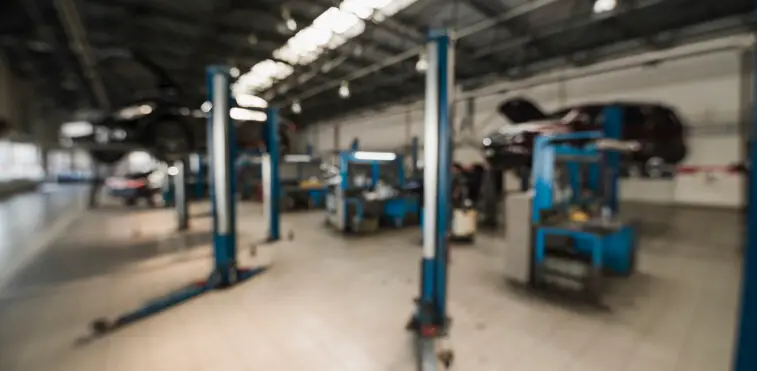The Mechanic Doctor – Resources for Amateur and Pro Auto Mechanics
Creating a healthy working environment is crucial for professionals in any field, and mechanics are no exception. In the fast-paced world of automotive repair, where attention to detail and precision are paramount, a healthy workspace can significantly impact a mechanic’s well-being and performance. From preventing accidents to promoting physical and mental well-being, there are various tips and tricks that can help mechanics thrive in a safe and healthy environment.
In this blog, we will explore a range of strategies and practices to ensure mechanics work in a healthy environment. We will discuss everything from organizing tools and maintaining cleanliness to implementing safety protocols and promoting work-life balance. By following these tips, mechanics can enhance their productivity, reduce the risk of injuries, and safeguard their overall well-being.
Creating a Safe and Clean Workspace
A clean and organized workspace not only promotes efficiency but also plays a crucial role in maintaining a healthy environment for mechanics. By implementing these tips, you can create a safe and clean workspace that enhances productivity and minimizes the risk of accidents.
Organizing tools and equipment for easy accessibility
- Categorize tools based on their function and usage, and designate specific storage areas for each category.
- Utilize pegboards, tool chests, or wall-mounted racks to keep tools within reach and easily identifiable.
- Implement a tracking system to ensure tools are returned to their designated places after use.
Maintaining a clutter-free workspace to prevent accidents
- Regularly declutter the workspace by removing unnecessary items, such as packaging materials or unused equipment.
- Keep walkways and pathways clear to avoid tripping hazards.
- Use cable management solutions to organize and secure electrical cords and hoses, reducing the risk of entanglement or accidental pulls.
Regular cleaning and disinfection of work areas
- Establish a cleaning schedule to ensure regular maintenance of work areas, including benches, floors, and surfaces.
- Use appropriate cleaning products and disinfectants to eliminate dirt, grease, and bacteria.
- Pay special attention to high-touch areas, such as door handles, tool handles, and shared equipment.
By prioritizing organization, cleanliness, and maintenance in your workspace, you create a more efficient and safe environment for mechanics to operate in. These simple yet effective tips will not only streamline work processes but also reduce the risk of accidents and contribute to a healthier work atmosphere.
Encouraging Regular Breaks and Work-Life Balance
In the demanding field of mechanics, it’s easy to get caught up in the fast-paced nature of work and neglect the importance of breaks and work-life balance. However, prioritizing rest and finding a healthy balance between work and personal life is crucial for the well-being and longevity of mechanics. Here are some effective strategies to encourage regular breaks and foster a better work-life balance:
Recognizing the importance of taking breaks to rest and recharge
- Educate mechanics about the benefits of breaks, such as reducing fatigue, improving focus, and preventing burnout.
- Implement a break schedule that allows mechanics to take short breaks throughout the day, ensuring they have time to rest and recharge.
Strategies for promoting work-life balance among mechanics
- Set clear boundaries between work and personal life, encouraging mechanics to disconnect from work during their time off.
- Avoid overloading mechanics with excessive work hours and prioritize a healthy work-life balance in scheduling and staffing decisions.
Creating a supportive work culture that values employee well-being
- Foster open communication channels where mechanics can express their needs, concerns, and ideas related to work-life balance.
- Recognize and appreciate the efforts of mechanics, creating a positive and motivating work environment.
Finding a healthy balance between work and personal life is essential for preventing burnout and maintaining long-term job satisfaction. Encouraging regular breaks and supporting work-life balance not only benefits the mechanics’ physical and mental health but also leads to increased productivity and job performance. By implementing these strategies, mechanics can achieve greater harmony between their professional and personal lives, resulting in a healthier and more fulfilling career.
Implementing Safety Protocols
Safety should always be a top priority in any mechanic’s workshop. By implementing and following proper safety protocols, mechanics can protect themselves, their colleagues, and the overall work environment. Here are some essential tips for establishing effective safety protocols in the workshop.
Importance of following safety protocols in a mechanic’s workshop
- Educate mechanics about the potential hazards and risks associated with their work, emphasizing the importance of adhering to safety protocols.
- Emphasize that safety is everyone’s responsibility and that all employees must actively participate in creating a safe working environment.
Establishing clear guidelines for handling hazardous materials and substances
- Provide comprehensive training on the proper handling, storage, and disposal of hazardous materials, such as fuels, oils, and chemicals.
- Ensure that mechanics have access to safety data sheets (SDS), first aid tools and understand how to interpret and apply the information when working with potentially dangerous substances.
Providing safety equipment and ensuring its proper use
- Equip the workshop with appropriate personal protective equipment (PPE), such as gloves, safety goggles, ear protection, and respiratory masks.
- Regularly inspect and maintain safety equipment to ensure its effectiveness.
- Enforce the consistent use of PPE during all relevant tasks and provide training on how to wear and use the equipment properly.
Last Words
By implementing and enforcing robust safety protocols, mechanics can significantly reduce the risk of accidents, injuries, and occupational hazards. Regular training, clear guidelines, and the provision of necessary safety equipment will contribute to a culture of safety in the workshop. Remember, prioritizing safety not only protects the well-being of mechanics but also enhances overall efficiency and productivity in the long run.
The post Tips and Tricks To Ensure Mechanics Work In a Healthy Environment appeared first on The Mechanic Doctor.
